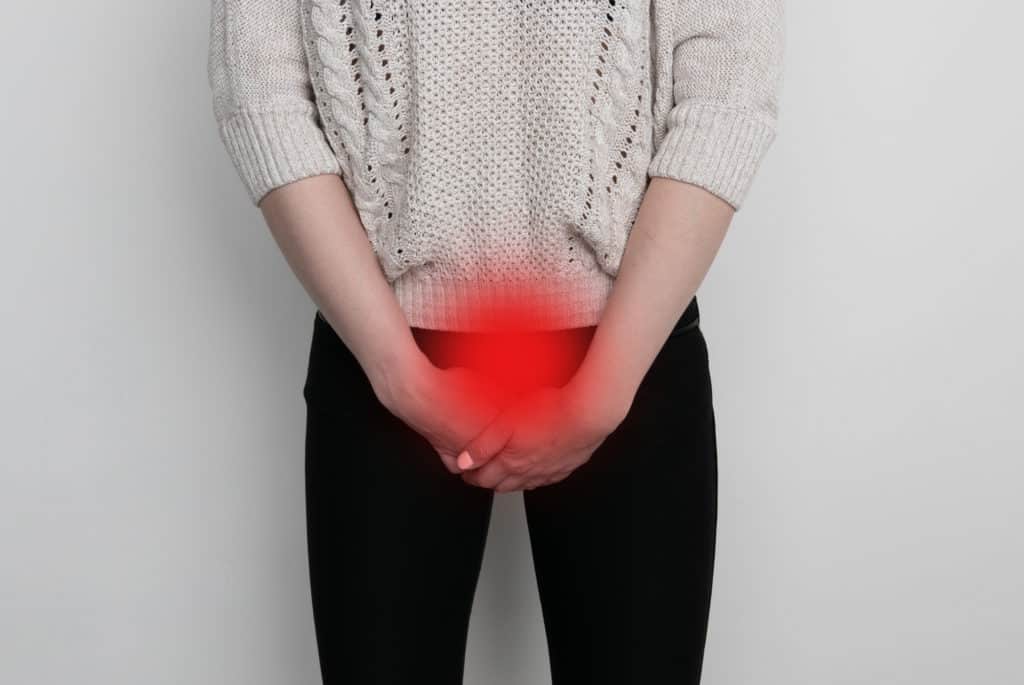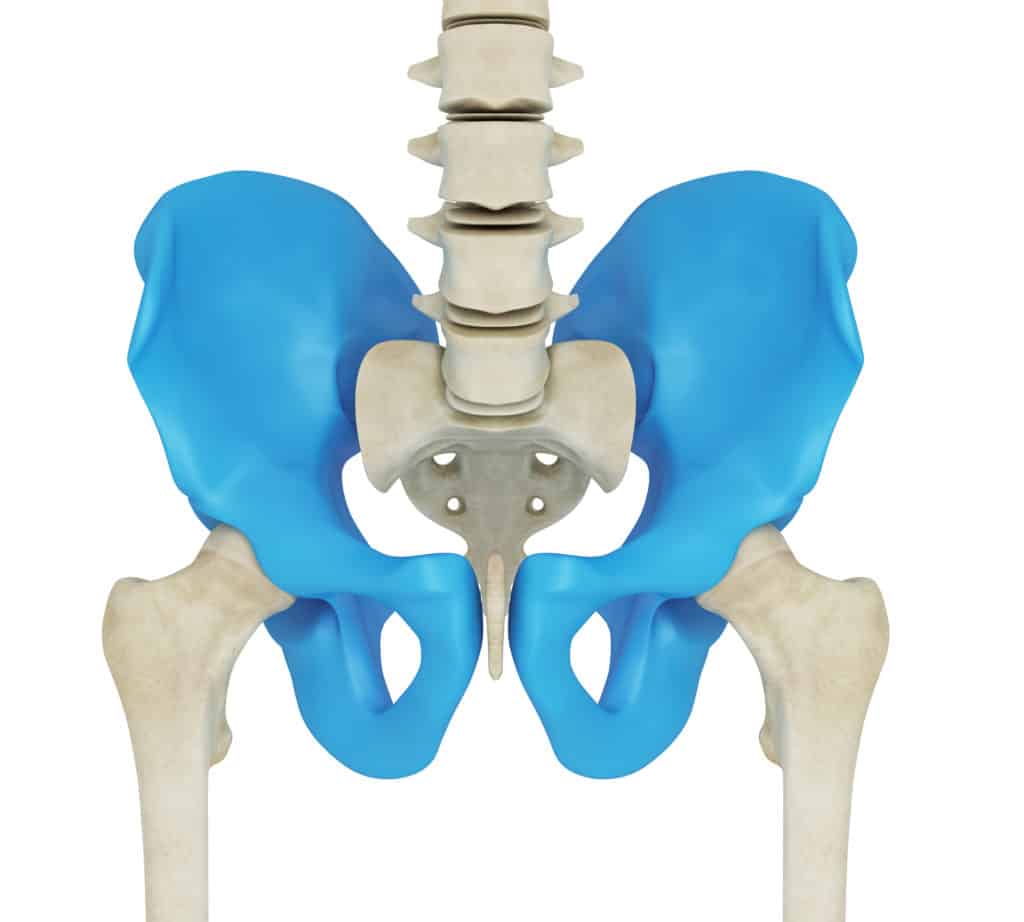
Do you have an issue that involves your pelvic floor muscles?
Want to find out more about Pelvic Floor Therapy?
Pelvic floor therapy is a type of physiotherapy that uses effective techniques to recondition and strengthen the pelvic floor muscles. The objective of this type of treatment is to improve the overall functioning and strength of your pelvic muscles while rectifying any dysfunction, pain, or discomfort that you might have in that area.
So, you’ll be pleased to hear that we can help your embarrassing issues you have like a pelvic organ prolapse, chronic constipation, painful sex or a “weak bladder.”
During a course of Pelvic Floor Therapy sessions, a specially trained physiotherapist works specifically on the pelvic muscles and the surrounding and supporting muscles that make up your “core.” As a result, they improve their function and strength.
If your pelvic muscles are dysfunctional or weak, we use resistance to build their strength and correct any imbalances. For example, suppose we find that your pelvic muscles are short or contracted. In that case, we use specialized stretching movements to release stored tension and restore normal function.
Why Would I Need Pelvic Floor Physiotherapy?

The areas we focus on during pelvic floor therapy include the pelvic floor muscles, the connective tissues, and the ligaments. These muscles, fascial tissues, and ligaments collectively provide support to the organs in your pelvis.
They help in bowel movements and bladder function, and they’re also crucial to sexual arousal and orgasm. The connective tissues in this area connect to the sacrum, tailbone and pelvis bones while also supporting the vagina, bladder, the prostate in men, the urethra, the rectum, and the uterus in women.
Whenever anything goes wrong in this area that causes pain, discomfort, or impairs normal functioning, we call it pelvic floor dysfunction – and recommend Pelvic Floor Therapy to fix the dysfunction.
Here are some of the most common conditions that Pelvic Floor Physiotherapy helps:
- Pain in the low back, abdomen, pelvis, thigh, or hip
- Difficult and painful urination
- Incontinence (fecal and urinary)
- Pain during sex or genital pain
- Bowel and bladder issues
- Postpartum and pregnancy well-being
- Menopause issues
- Unexplained pain
- Constipation
- Endometriosis
- Vaginismus
- Pain in the rectum
- Pain during pregnancy
- Pain in the testicles
- Interstitial cystitis (IC)
Is Pelvic Floor Therapy Right For Me?

Doctors recommend Pelvic Floor Therapy to treat various medical conditions related to the pelvic floor muscles. Men and women can have weak pelvic floor muscles, although it is more common in women because of pregnancy and childbirth. But both genders benefit from Pelvic Floor Therapy to strengthen the pelvic muscles, improve bowel and bladder functioning, and restore sexual function.
Specifically, your doctor may recommend Pelvic Floor Therapy if they determine that your pelvic floor issues are “neuromuscular.” This term means that it’s connected to the nerves that control your muscles. Impaired neuromuscular functioning can occur due to surgery, illness, ageing or pregnancy and lead to genitourinary conditions like urinary stress incontinence, bladder problems and chronic constipation.
In men, pelvic floor therapy can help with sexual issues like pain when ejaculating or premature ejaculation. It can also be helpful for men that have undergone prostate surgery or radiotherapy to treat prostate cancer. In addition, men who have pelvic floor therapy tend to recover quicker, have better urinary and bowel control and have a diminished risk of rectal prolapse.
Pelvic floor physiotherapy can help women with painful sex, severe pelvic pain, bowel movement difficulties, urinary stress incontinence, urinary urgency, vaginismus, and endometriosis. The treatment is particularly beneficial for women after pregnancy and reduces the risk of vaginal prolapse, incontinence and chronic constipation.
What Happens During A Pelvic Floor Therapy Session?

When you attend your first pelvic floor therapy session, the first step is to discuss your prior medical history. This history will include surgical information and any medication you take. The physiotherapist may also ask about your gynecological and sexual history. Next, we perform a physical evaluation, paying extra attention to the hips, your posture, gait, and lumbar spine. Next, we evaluate your internal and external pelvic floor muscles, your abdomen and core. Finally, we may get you to perform a specific set of movements to check for any joint or posture-related issues affecting your pelvic floor muscles.
This physical examination helps us decide whether physical therapy is right for you and whether it would be beneficial for you. Later, the information we gather here allows us to create a personalized exercise plan for you. However, the specific type of Pelvic Floor Therapy we recommend for you is specific to your symptoms. For example, you may need muscle strengthening exercises to relieve symptoms. In contrast, someone else may need their pelvic floor muscles to lengthen and relax.
But here are some of the things that your Pelvic Floor Therapy sessions may include:
- Strengthening the pelvis muscles or muscles of your trunk or legs.
- Stretching the pelvic muscles or muscles of your trunk or legs.
- Exercises to improve your coordination.
- Education on how to prevent and manage your specific set of symptoms
- For shortened muscles in the pelvis, we may recommend relaxation exercises.
Other kinds of treatments for the Pelvic Floor Muscles include:
- Hot/cold packs
- Electrical muscle stimulation
- Biofeedback for strengthening and relaxation of the pelvic floor muscles.
But whatever you need to treat your symptoms. Your pelvic floor therapy plan will be well-designed and tailor-made to work your pelvic floor muscles and improve their functioning and strength. We will stretch your contracted and shortened muscles. And any pain you have in your pelvic area – due to cramping and tightening – will be alleviated.
Frequently Asked Questions About Pelvic Floor Physical Therapy

The techniques we use in Pelvic Floor Therapy sometimes involve both external and internal treatment. Not everyone is OK with internal medicine, which is why we discuss it during your first consultation. Only if you are OK with internal therapy would we recommend it as part of your treatment plan.
The external techniques we may use for Pelvic Floor Therapy include mobilizing your joints – particularly in the hips, sacrum, and pelvis. We may also perform trapped nerve release, skin rolling, myofascial release and trigger point therapy.
The internal techniques we may use for Pelvic Floor Therapy include an initial internal exam. This exam may involve a finger (or a purpose-specific) instrument being inserted in the vagina or rectum to check for prolapses and the position of your pelvic organs.
Pelvic floor therapy is not necessarily the only course of treatment for issues relating to the pelvic area. Your treatment plan may also include:
- Education: about the functioning of the pelvic region and the pelvic organs, hygiene and how to prevent pelvic floor issues.
- Manual therapy and massage: using a hands-on approach with relaxing and stretching to increase blood circulation and improve posture and overall mobility.
- Pelvic floor movements: We instruct you to relax and contract the specific pelvic floor muscles without moving any other muscles in your body. The purpose of these exercises is to increase flexibility, strengthen weaker muscles and relax the tight ones. In addition, we may also teach you breathing exercises and how to increase their duration progressively, so they’re increasingly effective.
- Biofeedback: We use the biofeedback process to examine how the muscles in your pelvic region are functioning. For this, we may insert a probe into the vagina or rectum – with feedback on your movements and whether you’re performing the strengthening exercises properly visible on a screen.
At Gage Physiotherapy, we specialize in pelvic health. We help you stop embarrassing urine leakage and help you get your life back after pelvic organ prolapse – without medication, risky surgery or waiting to see the doctor.
Still not sure whether pelvic floor therapy is right for you?
We have just the thing for you. We offer all new Pelvic Floor Therapy patients a no-obligation, free consultation to chat with us about your issues and plan the best way forward. There is zero financial investment on your part. We can do it over the telephone or at our Hamilton, ON, clinic. The choice is yours.
If you’re not ready to book an appointment yet, we’ve also written a free guide for you to download. It’s all about pelvic organ dysfunction and what you can do to improve the symptoms and get out of pain.
It’s called “9 Signs That You’re Suffering From Pelvic Floor Dysfunction And What You Can Do About It”. Download yours here now and start taking some of the steps to improve your symptoms.
Never feel embarrassed about seeking help for your pelvic floor issues. We are here to help, and we have a proven track record in helping both sexes recover from muscle issues in their pelvis.
It’s time to get you back on your feet and enjoying life again. Let’s do this!

